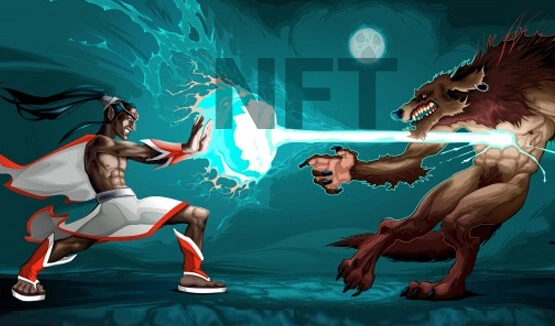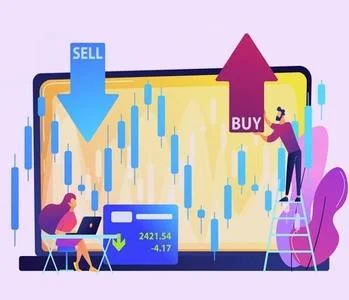NFT gaming platforms are digital ecosystems that leverage blockchain technology to enable the creation, ownership, and exchange of unique in-game assets as NFTs. These assets can include characters, weapons, skins, virtual real estate, and more. By utilizing smart contracts, NFT gaming platforms ensure provable ownership, scarcity, and verifiable authenticity of these virtual items. This novel approach to gaming unlocks exciting possibilities for players, developers, and investors alike.

The primary feature of NFT gaming development is the utilization of NFTs. Unlike fungible cryptocurrencies like Bitcoin or Ethereum, NFTs are unique digital assets that cannot be replicated or exchanged on a one-to-one basis. Each NFT has distinct characteristics, ownership records, and provable scarcity, providing a foundation for ownership, trading, and monetization of in-game assets.
NFT gaming platforms enable players to have provable ownership and authenticity of their in-game assets. Using blockchain technology and smart contracts, NFTs establish a transparent and immutable record of ownership, allowing players to verify the authenticity and history of their assets. This feature gives players a sense of true ownership and value for their virtual possessions.
NFT gaming platforms often allow players to create, customize, and personalize their in-game assets. This feature empowers players to unleash their creativity by designing unique characters, items, skins, or virtual real estate. By leveraging NFTs, players can establish their digital identity and express themselves within the gaming world.
NFT gaming platforms provide dedicated marketplaces where players can buy, sell, and trade their in-game assets with other players. These marketplaces operate on blockchain technology, ensuring secure and transparent transactions. Players have the opportunity to monetize their assets, discover rare items, or acquire assets from other players, fostering a vibrant player-driven economy.
Platform Integration: Interoperability is a key feature of NFT gaming development. NFTs can be designed to be compatible across multiple gaming platforms, allowing players to transfer or utilize their assets in different games or environments. This cross-platform integration enhances players' gaming experiences by expanding the utility and value of their NFT assets beyond a single game.
NFT gaming development offers numerous advantages for players, developers, and the gaming industry as a whole. Let's explore some of the key benefits:
NFTs provide players with true ownership of their in-game assets. Unlike traditional gaming, where players merely have a license to use virtual items, NFTs allow players to have provable ownership and control over their digital belongings. This sense of ownership adds value and investment potential to the gaming experience.
NFT gaming platforms empower players by enabling them to actively participate in the game's economy. Through the use of NFTs, players can buy, sell, and trade their virtual assets on dedicated marketplaces. This player-driven economy fosters a dynamic ecosystem where players can capitalize on their gaming skills and assets, creating new avenues for earning and financial opportunities.
NFT gaming platforms introduce innovative revenue-sharing models for game developers. Traditionally, developers generate revenue through initial game sales and in-game purchases. With NFTs, developers can earn a percentage of every transaction that occurs on secondary markets when players trade or sell their NFT assets. This ongoing revenue stream incentivizes developers to create high-quality, engaging games and content, benefiting both developers and players.
NFTs have the potential to bridge the gap between different games and gaming platforms. With NFTs, players can acquire assets in one game and utilize or transfer them to other compatible games. This interoperability enhances players' gaming experiences, allowing them to leverage their assets across multiple platforms. It also encourages collaboration among game developers, fostering a more connected and expansive gaming ecosystem.
NFTs introduce a new level of collectibility and rarity to gaming. Each NFT asset is unique, with distinct attributes and characteristics. This uniqueness creates a sense of scarcity, making rare NFT items highly sought after by players. The rarity of NFTs can drive engagement, excitement, and competition within the gaming community, as players strive to acquire exclusive and valuable assets.
NFT gaming platforms often encourage community engagement and user-generated content. Players can participate in community events, competitions, and collaborations to create and showcase their own NFT assets. This fosters a vibrant and interactive community where players can express their creativity, build a reputation, and engage with other like-minded individuals.
Blockchain technology underpins NFT gaming platforms, offering transparency and trust to players. The decentralized nature of blockchain ensures that ownership, transactions, and asset histories are securely recorded on the blockchain, eliminating concerns about fraudulent activities or asset duplication. This transparency builds trust among players, knowing that their assets are authentic, secure, and tamper-proof.
NFT gaming platforms create opportunities for players to monetize their gaming experiences. Skilled players can earn rewards, sell rare assets for profit, or become influencers within the gaming community. This economic aspect of NFT gaming introduces a new dimension to gaming, allowing players to turn their passion into a potential income source.
NFT gaming development brings numerous advantages, including true ownership, player-driven economies, new revenue streams for developers, interoperability, enhanced collectibility, community engagement, transparency, and monetization opportunities for players. As the technology evolves and gains wider acceptance, NFT gaming is set to revolutionize the gaming industry, providing more immersive, financially rewarding, and interactive experiences for gamers worldwide.
Blockchain scalability remains a significant hurdle for NFT gaming platforms. High transaction fees and network congestion can hinder the seamless integration of these platforms into the gaming ecosystem.
Ensuring the security of NFT assets is crucial. Developers must implement robust security measures to protect players' assets from hacks, theft, and fraudulent activities.
The environmental footprint of blockchain technology, particularly Proof-of-Work (PoW) consensus algorithms, is a concern. Developing more eco-friendly alternatives, such as Proof-of-Stake (PoS), becomes essential for sustainable NFT gaming platforms.
The future of NFT gaming platform development looks promising. As blockchain technology continues to evolve, scalability issues are being addressed through layer 2 solutions and more energy-efficient consensus algorithms. Moreover, as mainstream adoption grows, we can expect increased innovation, improved user experiences, and wider acceptance of NFTs in the gaming industry.

NFT gaming platform development is revolutionizing the gaming landscape by introducing true ownership, player-driven economies, and new revenue streams for developers. Despite challenges related to scalability, security, and environmental impact, the future prospects for NFT gaming platforms are bright. As the technology matures, we can anticipate more seamless integration, enhanced gaming experiences, and widespread adoption of NFTs, ultimately shaping the future of gaming as we know it. Embracing this paradigm shift in gaming will undoubtedly lead to a more immersive and financially rewarding gaming ecosystem for players, developers, and investors alike.
